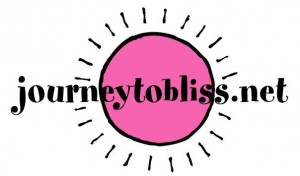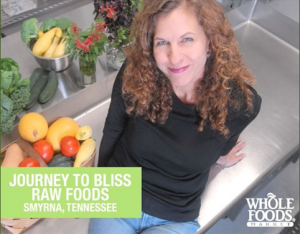 Every year, Bonnaroo has a tent called The Academy, where you can learn vital skills like hula hoop making and spoken word poetry. Though I searched in vain this year for my favorite primitive skills guru, I did stumble upon a mother-daughter team giving a workshop about raw food called “Living Cuisine.” Okay, I know what you’re thinking, especially given what I just said about hula hoops, but I found Laura Button and Journey Button-Hale of Journey to Bliss Raw Foods really down-to-earth and engaging, and there were some surprises in the presentation that I thought were worth sharing.
Every year, Bonnaroo has a tent called The Academy, where you can learn vital skills like hula hoop making and spoken word poetry. Though I searched in vain this year for my favorite primitive skills guru, I did stumble upon a mother-daughter team giving a workshop about raw food called “Living Cuisine.” Okay, I know what you’re thinking, especially given what I just said about hula hoops, but I found Laura Button and Journey Button-Hale of Journey to Bliss Raw Foods really down-to-earth and engaging, and there were some surprises in the presentation that I thought were worth sharing.
Ditch the Labels—Laura still bristles at the idea of labeling someone according to their eating habits. “I’ll be a raw foodist when people stop brewing delicious beer,” she said. She made the point that you can have a vegan who eats a lot of processed crap every day or you can have an omnivore who eats mostly fresh vegetables and, occasionally, a grass-fed hamburger at a party; which one is healthier and eating more mindfully? Her point was that labels like raw foodist or vegetarian aren’t as meaningful as the day-to-day choices that lead people to eat food that makes them feel good. That (to a longtime vegetarian who occasionally and somewhat guiltily eats seafood) sounded refreshingly logical.
Rethink that Multigrain Chip on Your Shoulder—Whole Foods is a big, big corporation, which, to some folks, earns them an automatic Darth Vader rating on the Scale of Villainy. While I can’t speak to all of WF’s business practices, Laura did point out a pretty grand one, which is that they regionally stock small, local producers, giving them far greater reach. So if you’re at a Whole Foods in Tennessee or Georgia, you might see the Intentional Foods line that Laura and Journey produce. It definitely made me want to hunt around in my own Whole Foods for some small suppliers doing their best in my neck of the woods.
It Might Be a Good Idea to Eat like a Toddler—Little kids are weird, and they’ll do things like decide they’re not eating anything but watermelon for an entire day. While those “mono-meals” might be frustrating to parents, Laura pointed out that they’re probably much more in line with the way our hunter-gatherer ancestors ate, who found a food resource and exhausted it. Eating one thing (rather than say, a processed food with eighteen ingredients) is just easier for your body to figure out and break down. And if you are a food pyramid purist, it might be worth considering the idea of balanced meal. “We were built to eat mono-meals. Your body can hold onto amino acids over a span of days in order to build proteins with them,” Laura explained, which is why it’s not really necessary for humans to eat meat or dairy (or anything else) every day to get the protein they need.
Pass the Kale, Please—The entire time that Laura was talking, Journey was preparing a giant bowl of kale and carrot salad, with a dressing of unpasteurized soy sauce, almond butter and an onion-garlic slurry that they call “the magic elixir.” Even though I liked these ladies by the time the salad was ready to taste, I was worried about how raw vegetables were going to hold up in the sweltering Tennessee heat. But my fears were unfounded. Despite being slurped, utensil-less, off a paper plate, that salad was one of the best things I ate all weekend. Maybe there’s a little bit of raw foodist in all of us.


I love her philosophy! There’s little I hate more than being grilled (metaphorically) by some dude with a sloppy Big Mac in his hands about why I say I’m vegetarian but eat fish occasionally. Because I’m healthy, dude! But really, I do it just to piss you off. And are you going to eat those fries…?